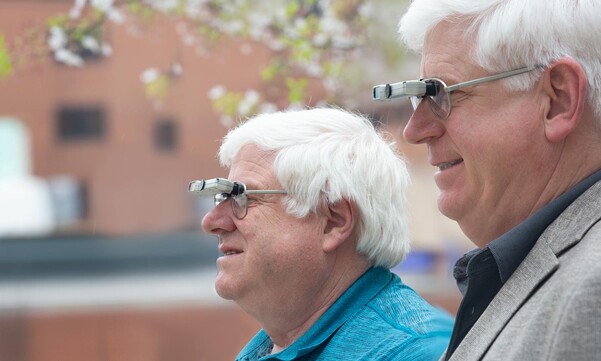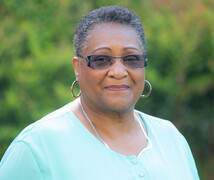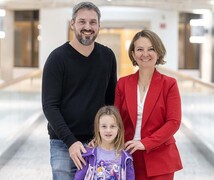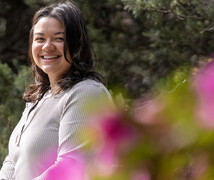Duke Health vision rehabilitation specialists provide vision optimization services and recommend assistive devices to help people with vision loss maximize their vision and minimize the impact of vision loss on everyday life. Occupational therapists and social workers also address the functional and psychosocial needs of people with low vision. “We educate and empower people so they can stay independent and participate in activities they enjoy, whether that's being in a book club or playing with their grandchildren,” said Omar Mohiuddin, a low vision occupational therapist at Duke.
Here Mohiuddin answers question about vision rehabilitation and the Duke vision rehabilitation program.
What is vision rehabilitation?
Vision rehabilitation helps patients compensate for vision loss and make the most of their remaining vision through vision correction, assistive devices, education, and more. For example, if someone with macular degeneration wants to live independently, they may need guidance and tools to cook safely, manage medications, and read bills. “Some people hear ‘rehabilitation’ and misunderstand what we do. It's not physical rehabilitation or eye exercises." Mohiuddin explained.
How do I get started with vision rehabilitation?
You’ll meet with Diane Whitaker, OD, an optometrist and the director of Duke’s vision rehabilitation program. She diagnoses and manages eye conditions and provides vision correction when possible. She may also suggest optical devices or technology to help you perform daily tasks.
Many vision rehabilitation programs stop there. As a Duke patient, you’ll also meet with specially trained occupational therapists for help modifying your home, using assistive technology and devices, and performing daily tasks. Because losing vision can be distressing, a social worker is available to address the psychosocial impacts of your vision loss. “We often advocate for people in the community, at home, at school, or at work, Mohiuddin said. “If we need to explain to their employer that they can still work as long as they have certain accommodations in place, that’s what we’ll do.”
How is occupational therapy relevant to vision rehabilitation?
Occupational therapy can improve your independence and enhance your quality of life. It provides tools and strategies to allow you to participate in occupations that are important to you. “An occupation isn’t just a job -- it’s anything that occupies your time,” explained Mohiuddin. Duke low vision occupational therapists may recommend adding high-contrast tactile dots to kitchen appliance buttons, changing lighting options, and much more. “We look at the whole person, everything that they're trying to do, and what they're having difficulty with, whether that’s putting toothpaste on a toothbrush, using their smart phone, or taking a daily walk.” They also encourage caregivers to be involved in the therapy process.
When is vision rehabilitation most helpful?
It’s never too early to begin, especially if you have a progressive condition, and you do not need to be legally blind to receive treatment. “We want to prepare you for what to expect in the future,” said Mohiuddin. “Vision loss is a journey, and your needs may change over time. Our team is here to support you every step of the way.”
How is Duke’s vision rehabilitation program unique?
According to Mohiuddin, the team approach makes all the difference. “Dr. Whitaker can maximize your vision with optical correction or technology, but we take it further and address the specific functional or psychosocial problems you’re struggling with. Working as a team allows each of us to be the best at what we do.”





